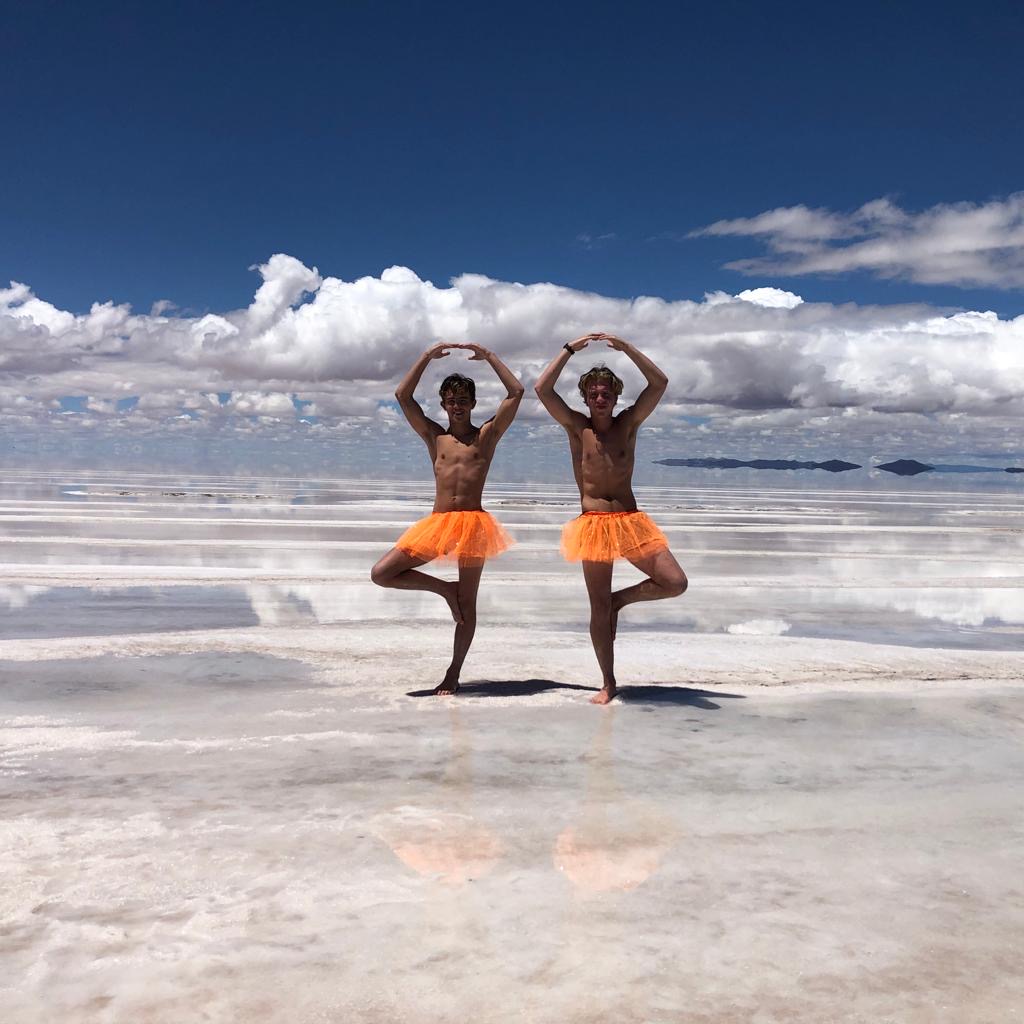
vrikshasana: no other trees in sight....

vrikshasana: no other trees in sight....
My elder son is at the Uyuni Salt Flats in Bolivia. He tells me it’s the most incredible and amazing thing he’s ever seen. Considering he’s just been to Machu Picchu, on his enviable sojourn around the breathtaking beauty of South America, I am inclined to believe it’s pretty special.
I was never quite so intrepid at his age, and the world seemed much larger, less accessible. Travelling was not something that most people thought about doing as a matter of course. These days it’s almost regarded as the norm. Why, I ponder??
In many personal growth or “recovery” circles, moving home, or travelling, can be referred to as a “geographical”. The idea being that when life becomes uncomfortable or we feel ill at ease with ourselves it is tempting to change the external rather than doing the deeper, internal work that can be so much more difficult. Consequently, moving or travelling can sometimes amount to nothing more than a temporary relief from existential torment because wherever we go, we take ourselves, and our issues, along with us. We get a change of scene, for sure. But once the novelty has worn off we settle into the same old patterns and experience the same old feelings; in the “geographical” model that is. The journey to and through the inner work lies along “The Road Less Travelled”, according to M. Scott Peck.
Even so, much as I esteem that particular writer, the unexpected but welcome stream of photos, videos and FaceTimes that comes my way as my son weaves around far flung places, gives me a window into not just the outer “geographical” but the inner experience of the traveller.
The immersion in a diversity of cultures; the vibrancy of smells, sounds and sights to which one is so unaccustomed, is both wondrous and challenging in its ability to explode the comfortable boundaries of the previously known. The oftentimes subconscious concept of “other” becomes indistinct in a necessary melting pot of experience, and the daily practicalities of life in unfamiliar surroundings builds an invaluable pragmatism and resilience. No easy road is this. The challenges are numerous but the rewards are plenty. He will return, no doubt, enriched and exhausted.
There is a world of difference I think, between a diversionary travel, the purpose of which is rooted in distraction from the self, to a determined journey beyond the boundaries of one’s known experience. The latter is a courageous exercise in exploration which has the power to galvanise a surprising and considerable degree of inner development. The former on the face of it, is an avoidance of sorts. Nonetheless, if we are seeking to avoid something it follows that we have become aware of it and must therefore already be on the inexorable and ever decreasing circle of the journey inwards. We may not have the timescale or the determination of purpose but we are nonetheless itinerant.
Perhaps journeys are sometimes an outer reflection of an inner dis-ease, or perhaps they are sometimes the expression of a pioneering spirit actively seeking expansion of knowledge and experience. It would seem to me that whatever form the journey appears to take, the traveller can in either case expect to journey both outwards and inwards, whether intentionally or not and the rewards, in both directions, are immeasurable.